Baidu Xinxiang Real Test: Making Mobile Phone Comparison Tables, Outperforming Manus in Usability
![]() 04/27 2025
04/27 2025
![]() 669
669
The Ultimate Digital Assistant for Chinese Users?
If the industry upheaval at the beginning of 2025 was fueled by DeepSeek's deep thinking mode.
Then the wave of general AI Agents (intelligent agents) triggered by Manus, coupled with MCP (Model Context Protocol), have emerged as key areas that various manufacturers will focus on contemplating, exploring, and promoting in the near future.
However, unlike DeepSeek, Manus has remained shrouded in mystery since its announcement.
The best evidence is that to this day, domestic users still lack a viable way to experience it. Even AI veterans like myself can only understand it through videos, and watching foreigners inexplicably marvel at it only fuels our curiosity about a product claiming to be a "revolution".
Fortunately, domestic manufacturers won't miss out on such an opportunity.
On April 25th, the Create 2025 Baidu AI Developer Conference with the theme "The World of Models, The Realm of Applications" was held at the Wuhan Sports Center. Baidu founder Robin Li delivered a keynote speech, sharing new insights on the implementation of AI applications. There were also six sub-venues focusing on cutting-edge topics such as MCP, DeepSeek, and AI programming.
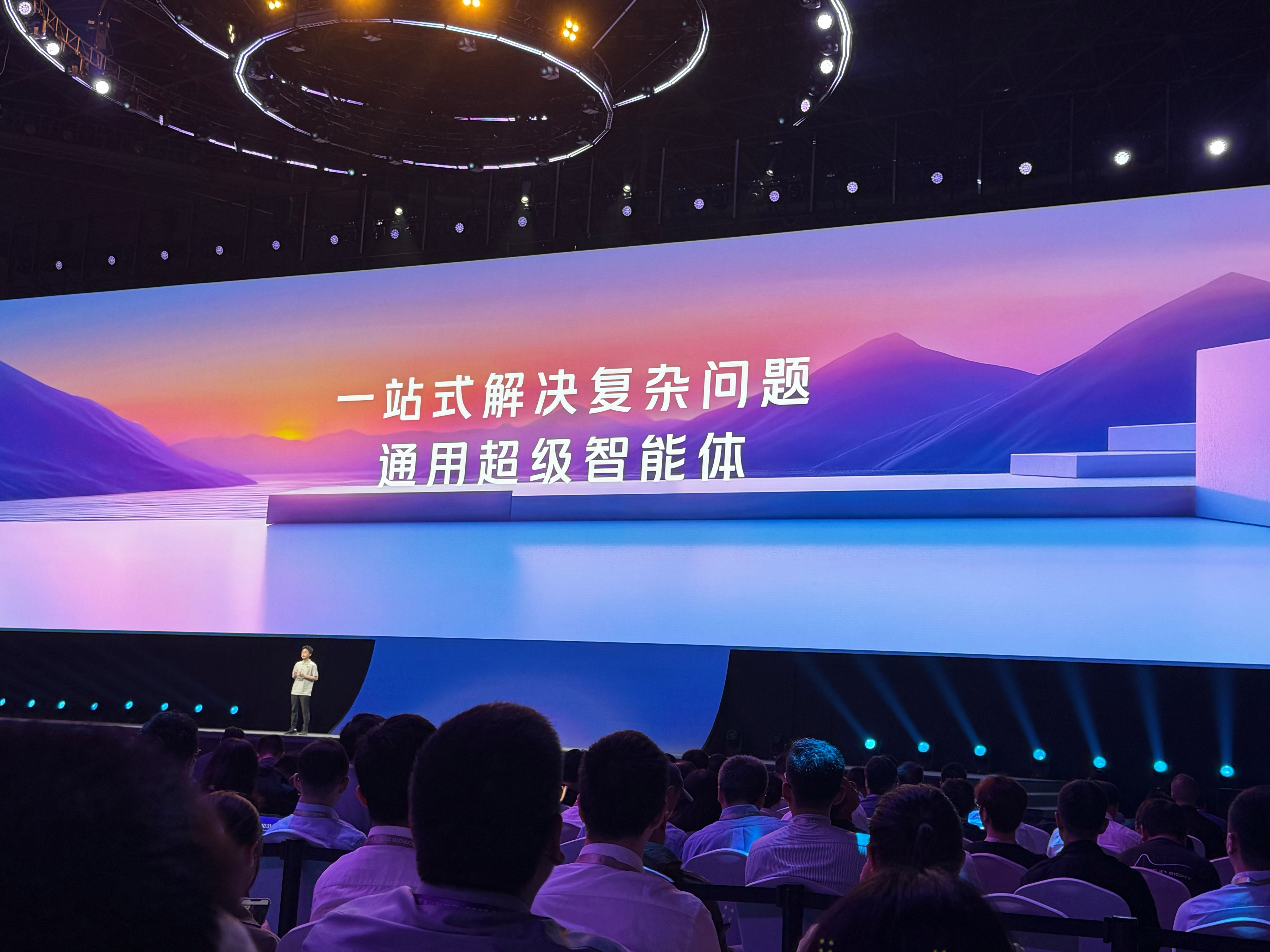
(Image source: Baidu)
Interestingly, before this conference, Baidu had quietly launched an app called "Xinxiang" on various app marketplaces. The official positioning of this product is a super intelligent agent, or more simply, you can understand it as Baidu's version of Manus.
Hey, let me, who hasn't experienced Manus, take you through Baidu's budget version of Manus today.
First Encounter with "Xinxiang"
First, let's address the most obvious question.
What is "Xinxiang"?
To be honest, when I first saw this name, I also found it a bit strange until I saw the icon resembling Aladdin's lamp, and then it dawned on me.
The so-called "Xinxiang" literally means that your wishes come true.

(Image source: Baidu)
In the Arab fairy tale "One Thousand and One Nights", a young man from the East named Aladdin discovers a magic lamp in a cave. Whatever Aladdin wishes for, he only needs to tell the lamp, and the lamp will grant it.
In reality, "Xinxiang" functions similarly. You don't need to understand prompts or master various AI agents. Users only need to tell it their needs, and Xinxiang will automatically invoke various tools to complete the task and finally deliver results that meet user needs.
At least from the product page, "Xinxiang" genuinely aspires to become the user's genie lamp.
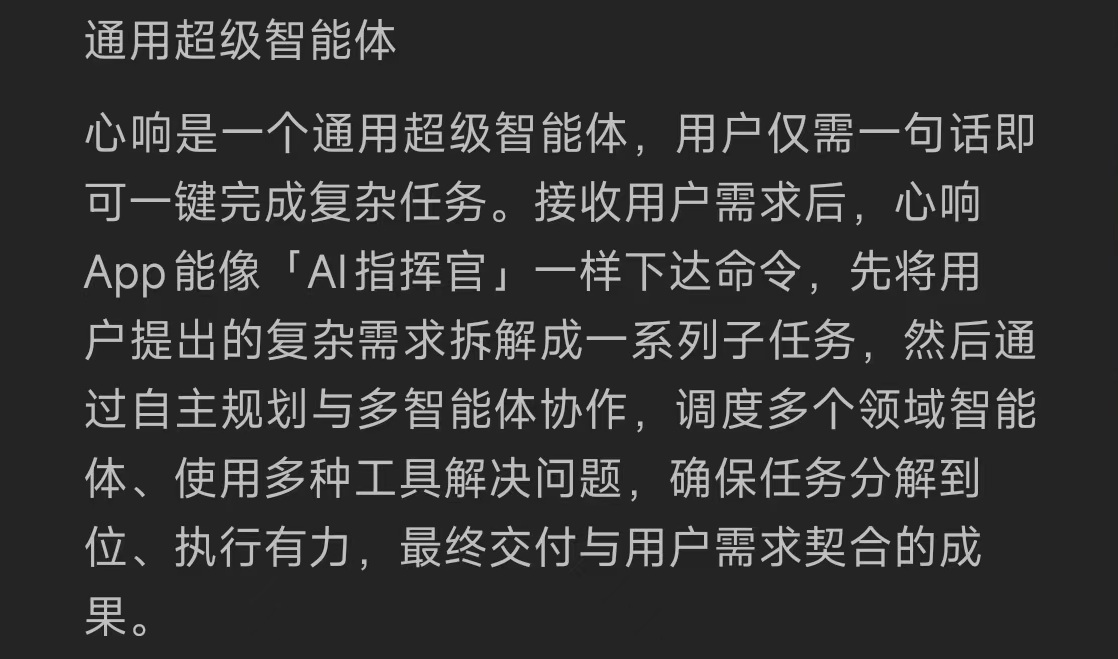
(Image source: Baidu)
The way to experience "Xinxiang" is actually quite straightforward.
Unlike ByteDance's Coze Space, Baidu chose to start from the mobile side. Currently, only Android devices can download and use it from the app marketplace. It is said that iOS has already been submitted for listing, so stay tuned...
Upon entering the "Xinxiang" app, you can see three bottom sections: "Inspiration", "My", and the most eye-catching, glowing genie lamp.
I know you're eager, but please bear with me. Let's first take a look at "Inspiration".
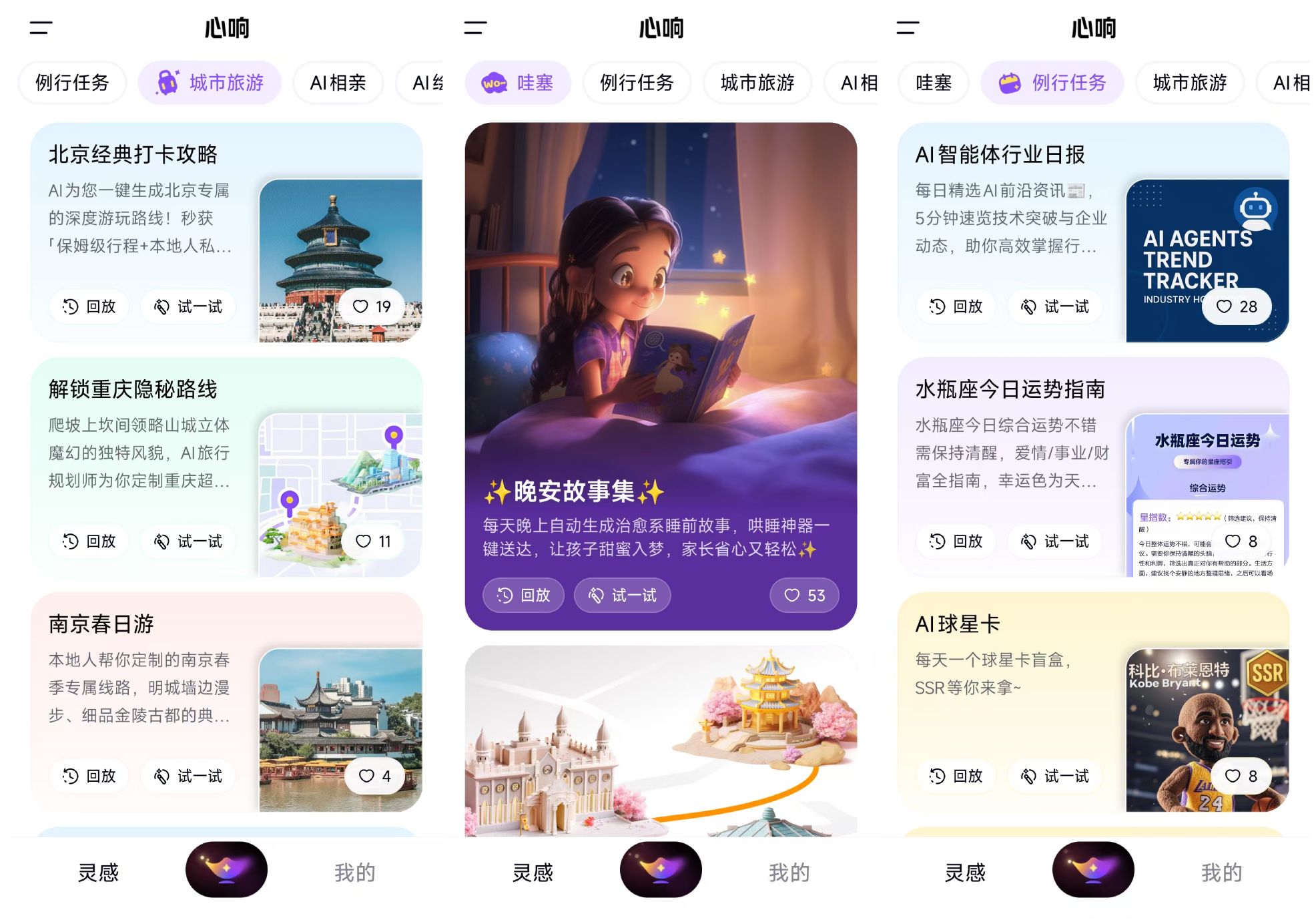
(Image source: Lei Technology)
The so-called "Inspiration" is essentially a series of task templates preset by "Xinxiang" for novice users in advance. Through these, you can understand what "Xinxiang" can do and how others use it.
These task templates are categorized into a series of channels such as Wow, Routine Tasks, and City Travel, making it convenient for users to retrieve them. According to official introductions, "Xinxiang" currently supports over 200 task types, covering work, study, life, and other fields. It can be said that it encompasses work, study, leisure, and entertainment.
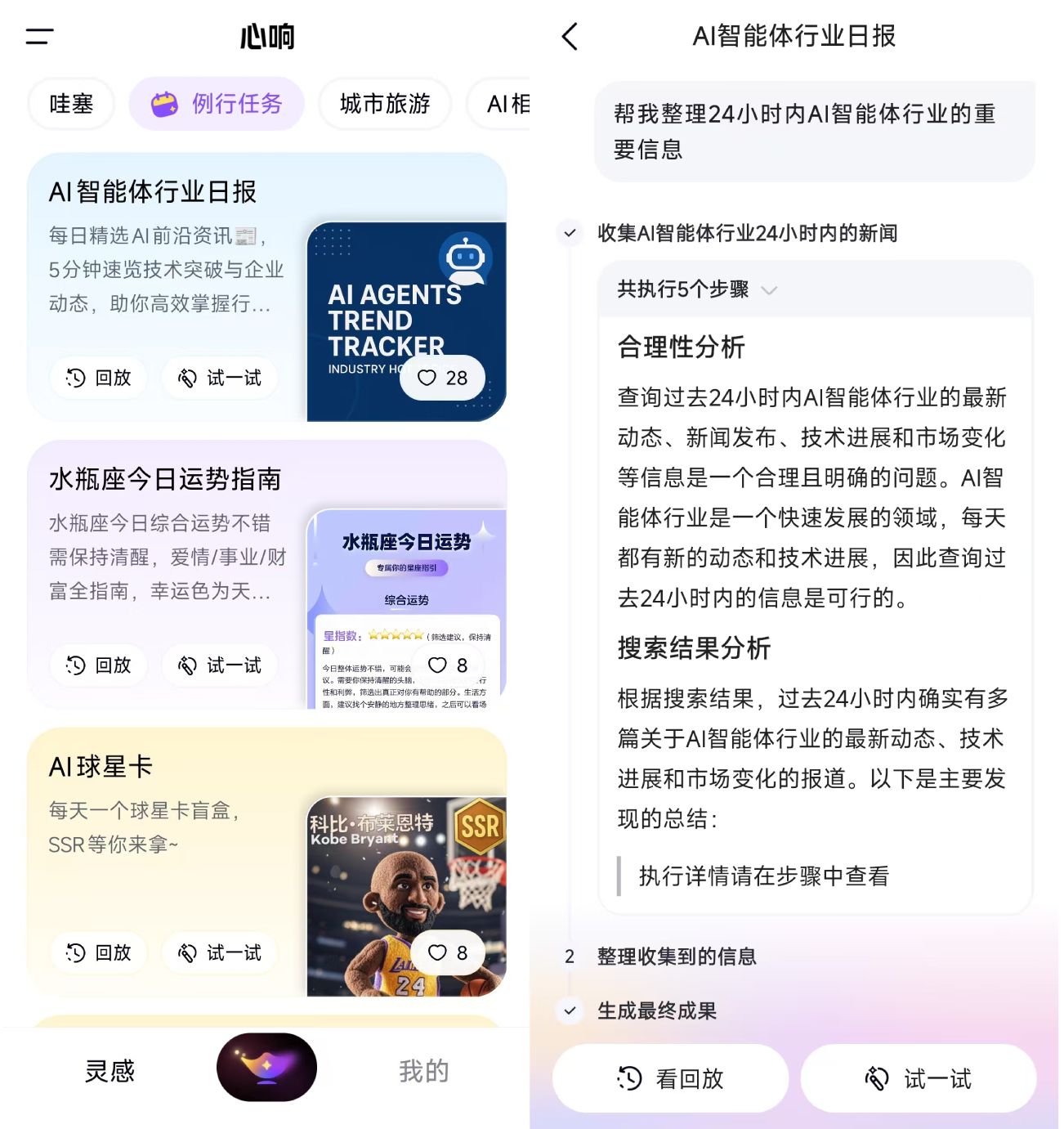
(Image source: Lei Technology)
Let me try randomly clicking on one to see.
It appears that users only need a simple sentence, and the AI will automatically analyze, break down tasks, execute them step by step, and finally present a polished result.
Can it really "make things happen"?
After a brief introduction, let's dive into the actual test.
First, I chose to start with an existing task template and modify part of the requirements to see how "Xinxiang" would perform.
"Help me organize important information on mobile phones and digital products within the last 24 hours."
Then, "Xinxiang" divides the processing ideas and processes into three major steps, totaling 16 steps, and invokes corresponding tools to complete the task:
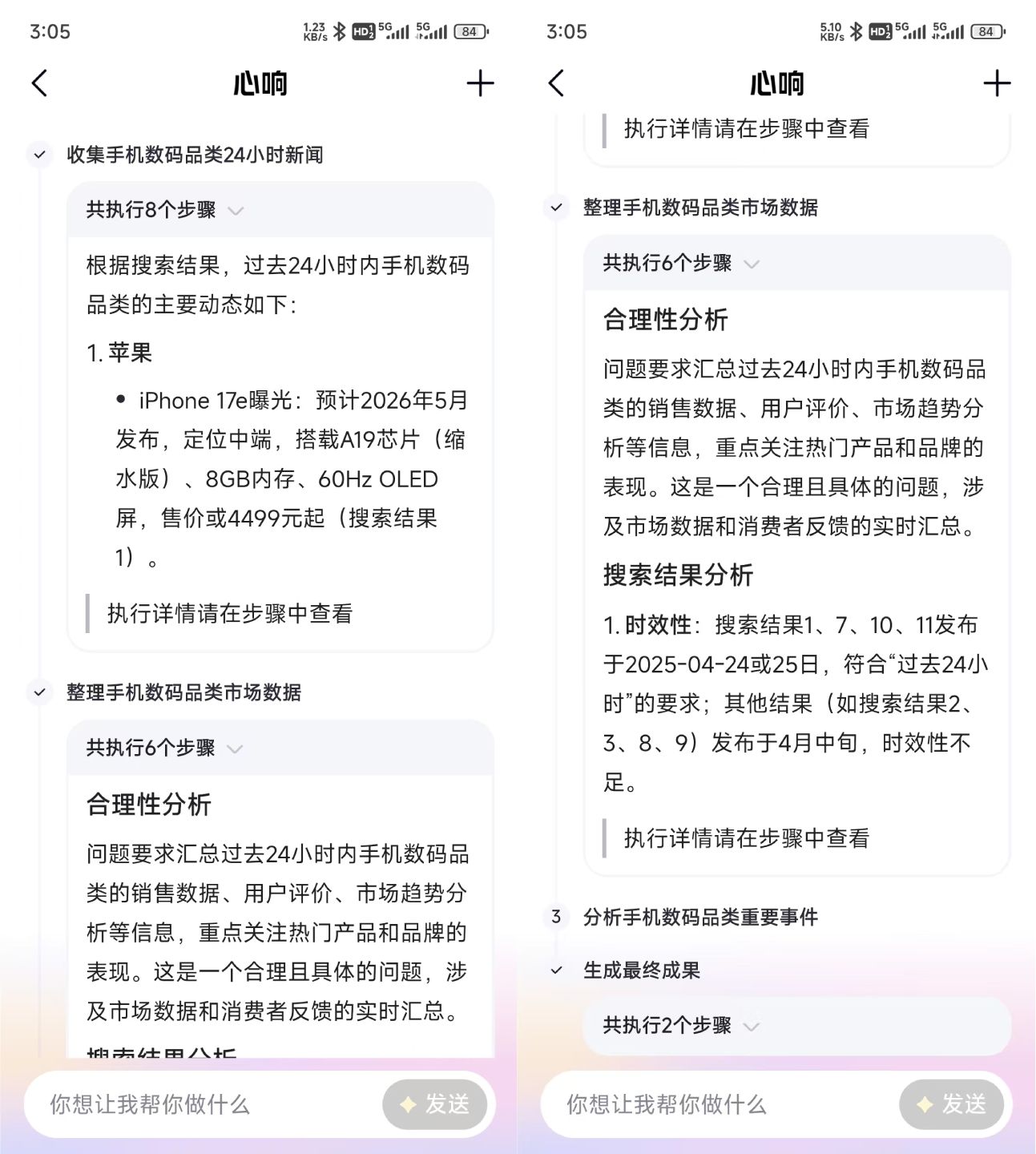
(Image source: Lei Technology)
The final delivery result looks like this:
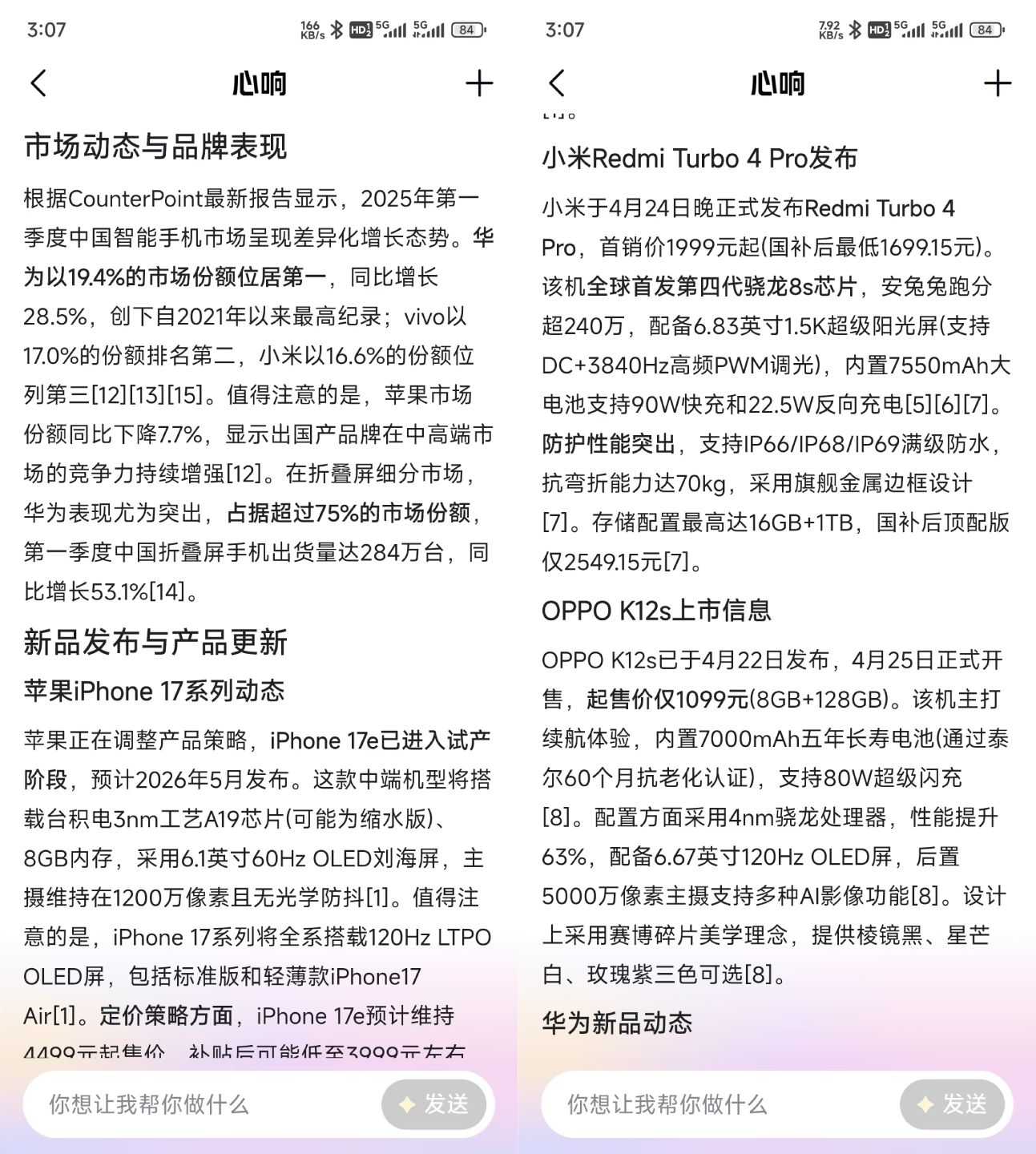
(Image source: Lei Technology)
Through the actual experience, throughout the task processing process, "Xinxiang" operates completely automatically. Users don't need to know which intelligent agent the AI uses or what MCP services are invoked, and they can still get good results.
Overall, the performance is quite impressive.
Of course, every product has its limitations, and no one can ensure that the task templates provided by "Xinxiang" can definitely cover everyone's task needs.
At this point, it's time to click on that glowing genie lamp.
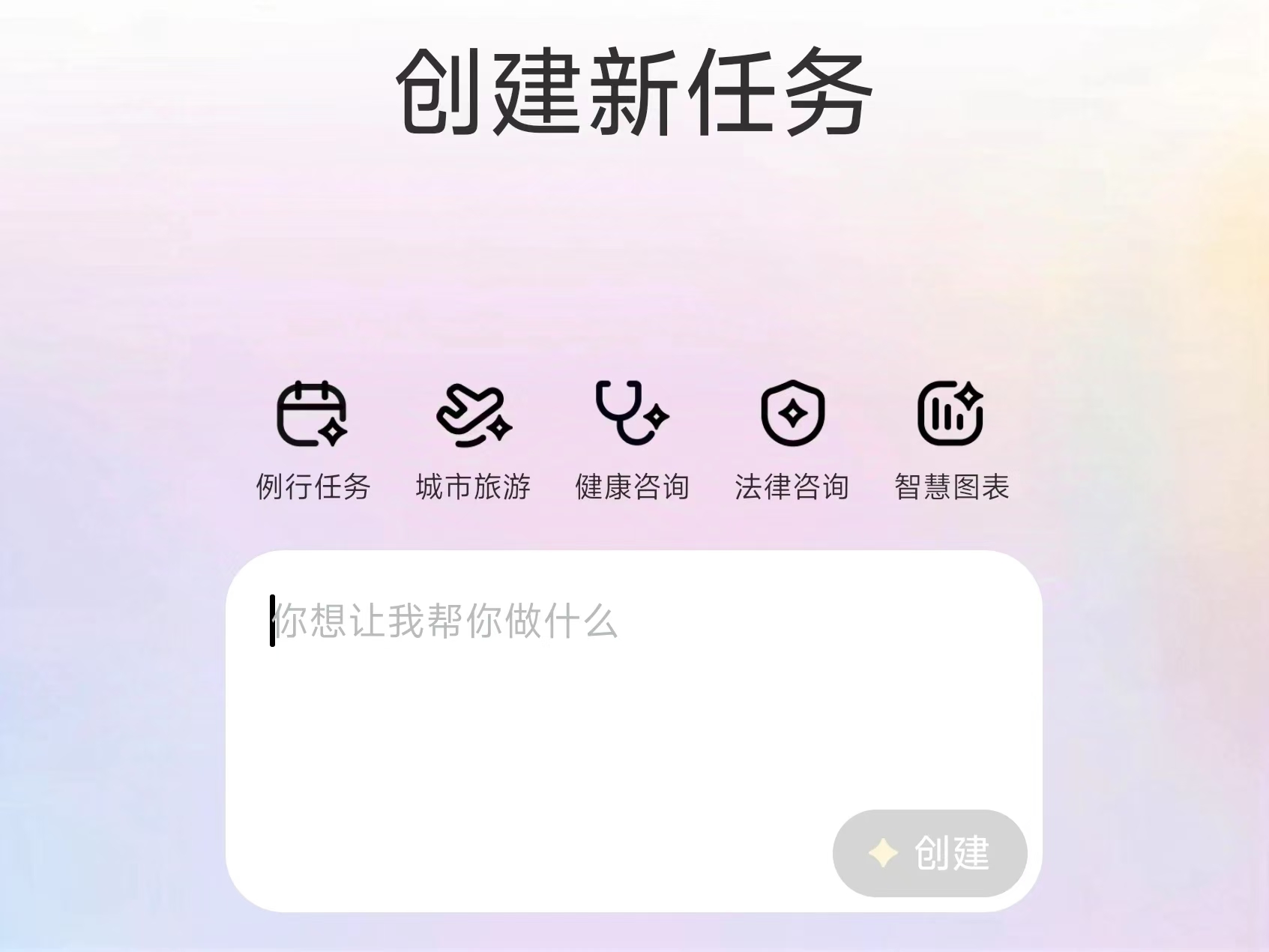
(Image source: Lei Technology)
For example, I have recently been working on a mobile phone comparison plan and need to create a configuration comparison table between selections.
In the past, to achieve this, I needed to flip through pages one by one, collect corresponding product parameters, record the current product prices, and even design the visual effects of the table myself. Even with a large model, I would only get a bunch of texts and still need to verify, organize, filter, and design them myself.
For such a table, readers with some patience might still take a look, but those without patience will skip it in an instant, which is a bit disheartening.
What if this task is handed over to "Xinxiang"?
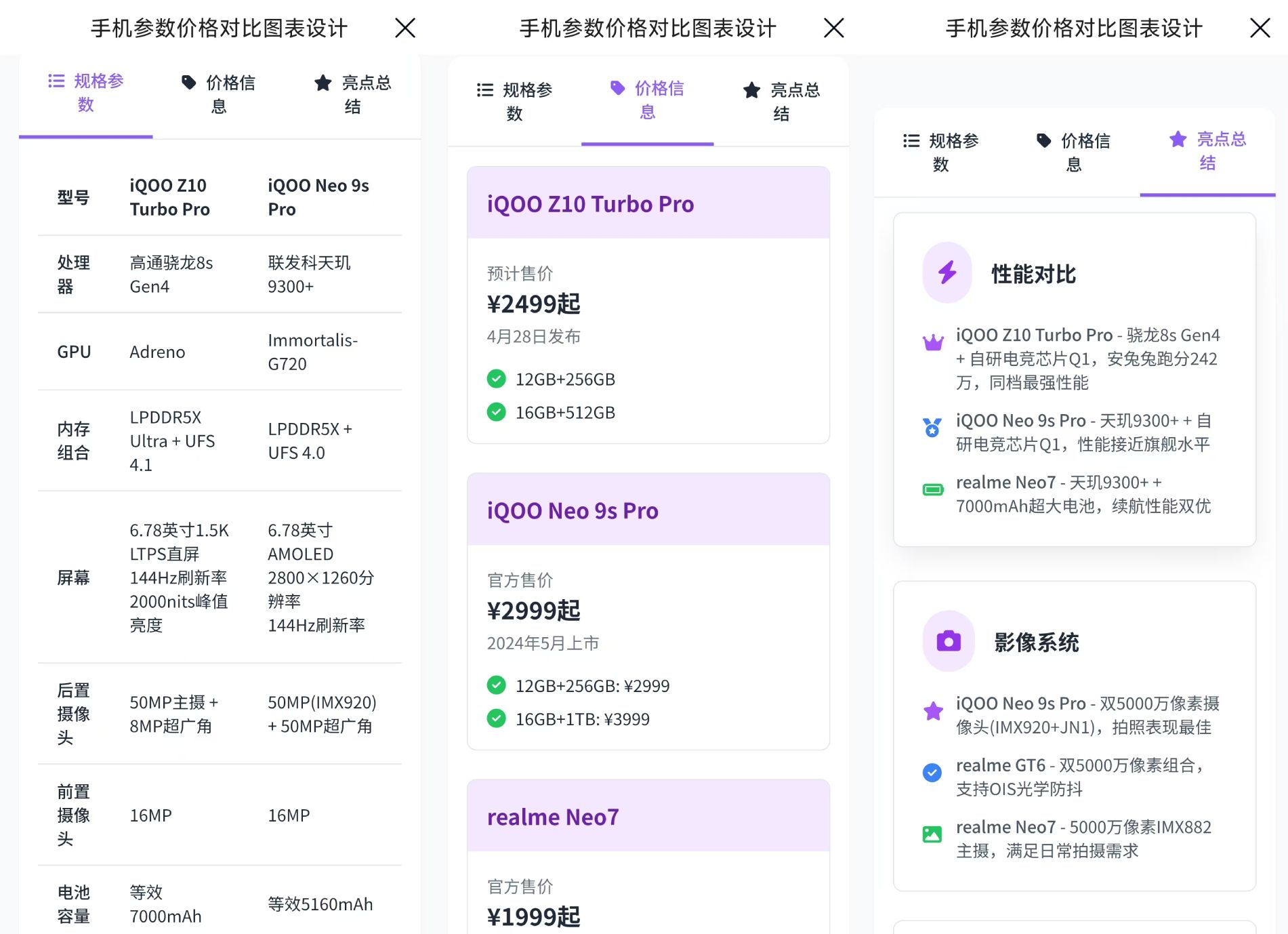
(Image source: Lei Technology)
You will then get a file like this, which not only contains extremely detailed parameter information but also provides price information and specific analysis in HTML format.
Real charts, one-click solution.
Of course, this doesn't mean that "Xinxiang" is flawless. If you carefully review the table, you will find that some of the information provided by Xinxiang is inaccurate. For example, the release date of the realme GT6 was incorrectly listed for this year, and the camera parameters inexplicably upgraded to a dual 50-megapixel combination, all of which require manual proofreading later.
Secondly, the files currently generated by "Xinxiang" have no ability to save, share, or edit them again, but according to my friends at Baidu, these functions will be available soon.
I also tried the travel scenario promoted by Baidu, asking it to plan a two-day trip to Zhanjiang during the May Day holiday for me.
A few minutes later, "Xinxiang" presented a well-organized answer.
It not only provided a detailed two-day travel guide but also successfully invoked external applications and directly provided navigation routes from Baidu Maps.
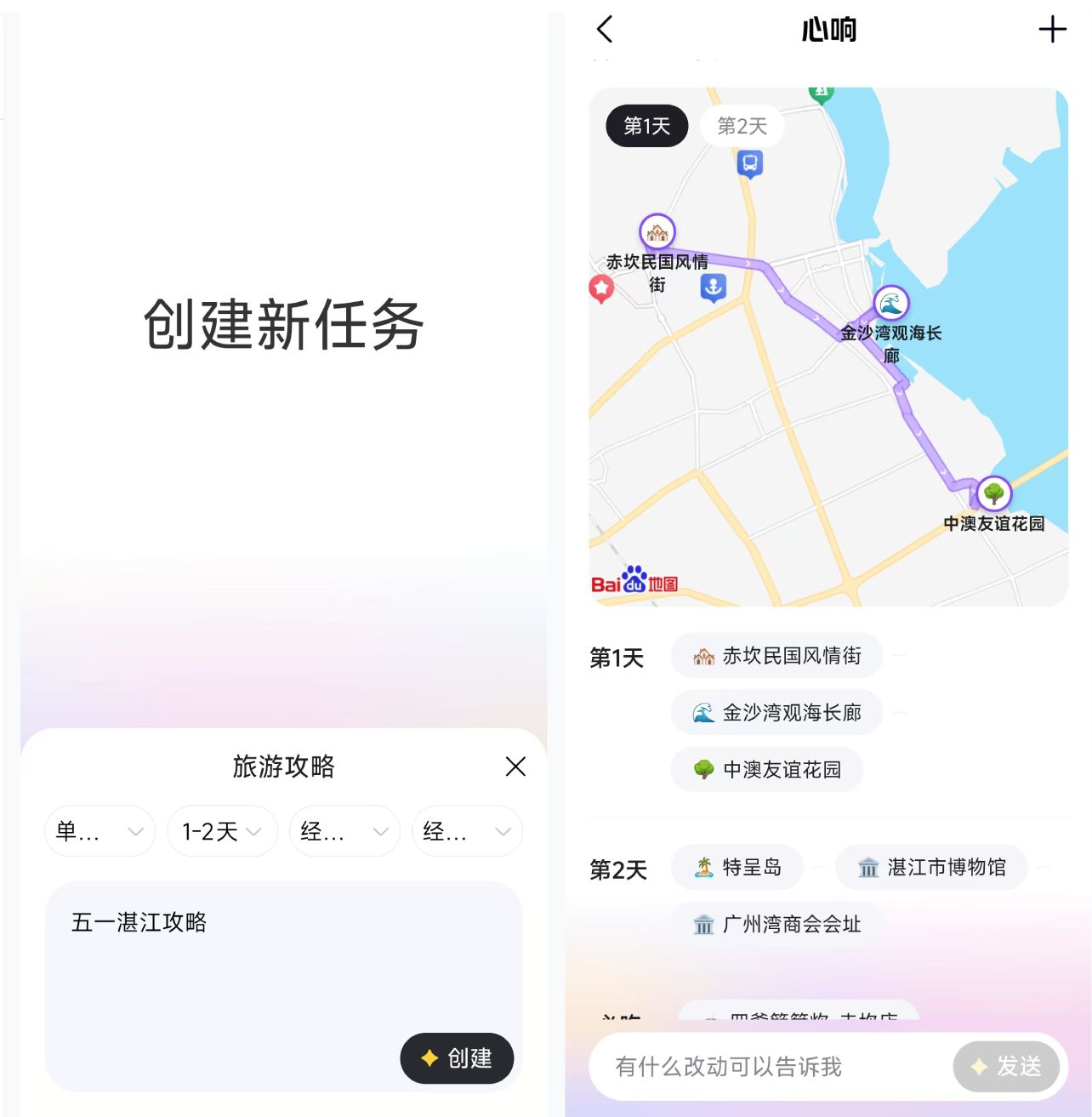
(Image source: Lei Technology)
As for the arranged itinerary, from the perspective of a Zhanjiang native, there is nothing wrong with it.
However, there are also some issues in this section. The current travel plan provided by "Xinxiang" is a complete "island". Users can view the planned route, but they cannot directly import the designed route into Baidu Maps.
I inquired about this issue and received official news that it will be adapted soon, which is worth looking forward to.
Moreover, you cannot jump to any application through this plan, even though every attraction on this travel plan looks clickable for more details.
Admittedly, Robin Li revealed at today's conference that Baidu Search has built a discovery platform for MCP servers, which can index high-quality servers across the entire network market in the future.
But this relatively fragmented experience is still a problem that Baidu needs to address as soon as possible.
Conclusion: A Promising Start
Finally, let's summarize.
Personally, I think the current experience presented by "Xinxiang" does have some surprises, but there are also some shortcomings.
The surprise lies in the exceptionally high response rate of "Xinxiang". Throughout the experience, I only encountered one situation where it stopped responding. The AI workflow that used to require some foundation and time to build was completed in just a few minutes, and the process was clearer and smoother.
In my opinion, AI should be like this - users propose requirements, and AI delivers results.
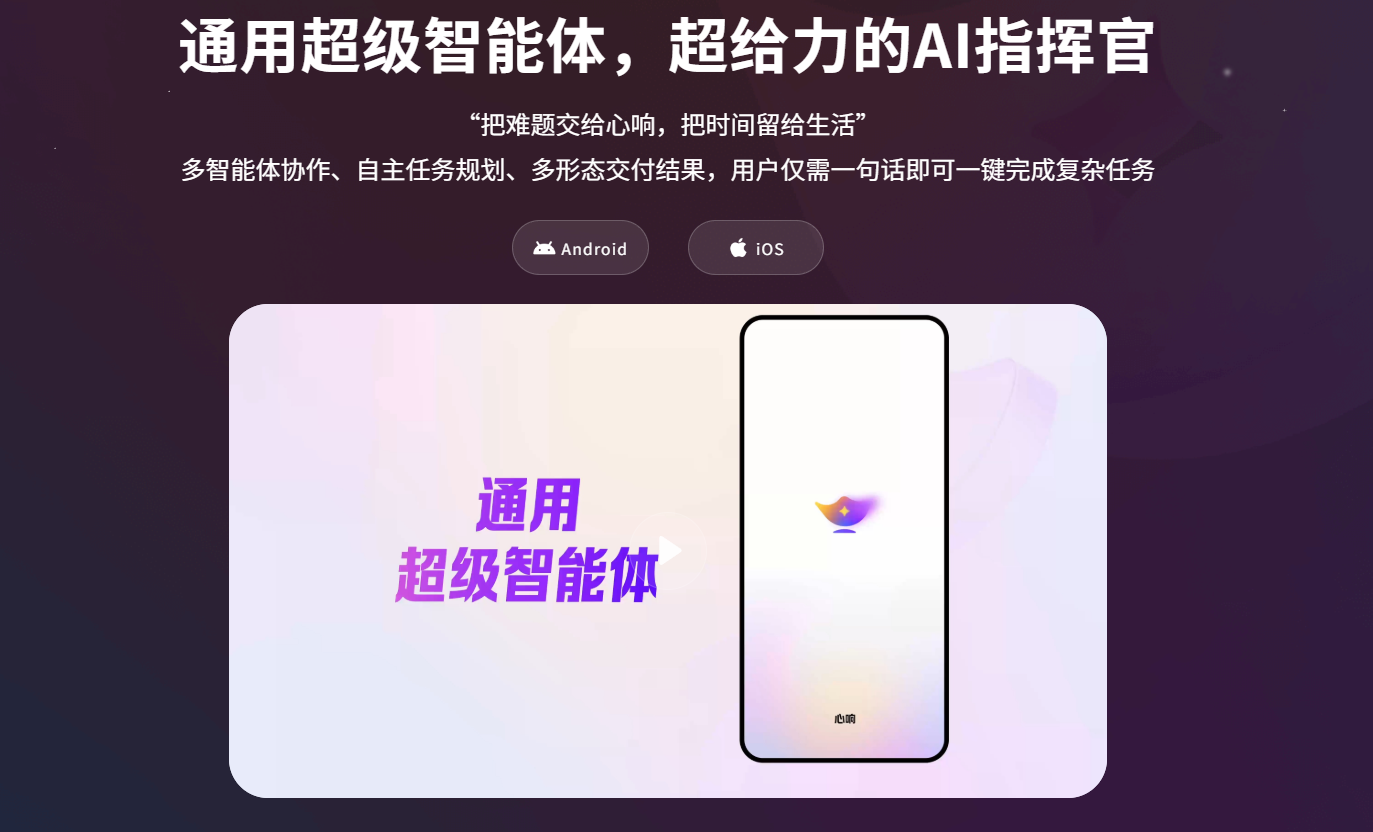
(Image source: Baidu)
The shortcoming lies in the fact that even if we set aside the problems encountered in the actual experience above, "Xinxiang"'s support for external LLM APIs and third-party tools is not outstanding, and the integration of its own services is also not up to par. Overall, it obviously has not reached the level of a versatile AI assistant, but only makes the completion of basic tasks easier.
Considering that this product itself is only an internal startup by a young team within Baidu, the imperfections are actually understandable.
But this also proves from the side that those complex and cumbersome AI tools with high usage thresholds will not necessarily be eliminated, at least not necessarily at this point in time.
At today's conference, Robin Li said that currently, intelligent agents have become synonymous with AI applications, and multi-agent collaboration is the next high-value direction for AI applications.
I personally agree with this statement. It can be foreseen that future large model applications will shift from answering questions to task execution. Intelligent agents will deeply think, autonomously plan, execute, and verify complex tasks, and finally deliver complete results required by users directly, rather than just providing suggestions.
With the successive launches of Baidu's "Xinxiang" and ByteDance's "Coze Space", the general intelligent agent track has officially entered the stage of "giant turmoil".
Compared to ByteDance's "Coze Space", the current "Xinxiang" is clearly a product more inclined to be a personal life assistant, such as focusing on mobile applications rather than PC applications, placing a large number of fun task templates on the product homepage, and emphasizing features like travel planning and information acquisition, which sufficiently show the product's relatively unique audience orientation.
Can Baidu bring general agents to the masses in a more user-friendly way?
In my opinion, the emergence of "Xinxiang" at least marks a promising start. Whether it can continue to iterate and optimize to truly solve user pain points remains to be seen.
Source: Lei Technology







